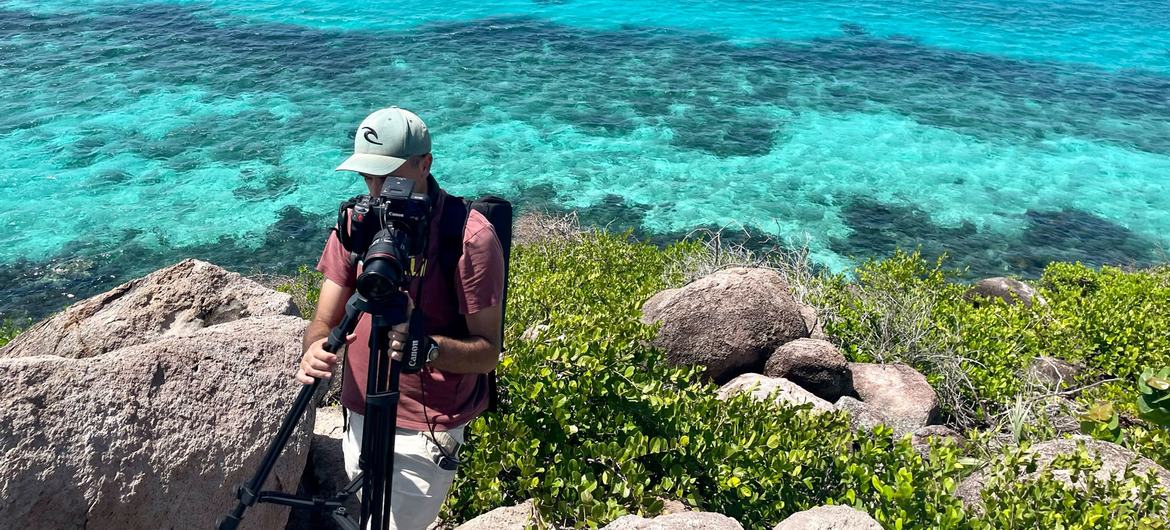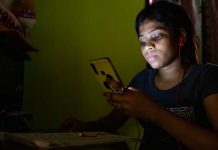As the dangers posed by climate change become increasingly evident worldwide, the need for reliable and accurate information on the impact of the environmental crisis is more crucial than ever.
To address this, the United Nations, together with the Organisation’s education and science agency, UNESCO and the Brazilian government, launched the Global Initiative for Information Integrity on Climate Change on Tuesday.
The joint effort announced at the G20 Leaders’ Summit in Brazil aims to strengthen research and measures to address all disinformation which has the effect of delaying or derailing climate action.
Speaking at the G20 Session on Sustainable Development and Energy Transition, the UN Secretary-General António Guterres said that the initiative will “work with researchers and partners to strengthen action against climate disinformation”.
“Coordinated disinformation campaigns are impeding global progress on climate change” he added in a social media post.
Time running out
At a time when scientists are warning that the world is running out of time, the initiative will boost support for urgent climate action.
“We must fight the coordinated disinformation campaigns impeding global progress on climate change, ranging from outright denial to greenwashing to harassment of climate scientists”, said Guterres.
Aiming to expand the scope of research into climate disinformation and its impacts, the effort will gather evidence from around the world to inform and bolster strategic action, advocacy and communications.
Speaking at the launch, UNESCO’s Director-General Audrey Azoulay said that “without access to reliable information about this existential challenge, we can never hope to overcome it”.
Full court press
Underlining the role of journalists in demanding accountability from diverse stakeholders, including businesses and governments, Azoulay added that the press “acts as a bridge between science and society” – a bridge that is “needed” she stressed.
“Through this initiative, we will support the journalists and researchers investigating climate issues, sometimes at great risk to themselves, and fight the climate-related disinformation running rampant on social media,” she urged.
The initiative is a response to the commitment in the Global Digital Compact, adopted by UN Members States in September, at the Summit of the Future, which encourages UN entities, in collaboration with Governments and relevant stakeholders, to assess the impact of mis- and disinformation on the achievement of the Sustainable Development Goals.
Countries’ commitment
Countries signing on will contribute to a UNESCO-administered fund, with a goal of raising an initial US$10 to US$15 million over the next 36 months, to be distributed as grants to non-governmental organisations to support their work.
This will include researching climate information integrity, developing communication strategies as well as public awareness campaigns.
So far, Chile, Denmark, France, Morocco, the United Kingdom and Sweden have already confirmed participation.
As stated by Brazil’s President Lula da Silva, “actions to combat climate change are also greatly affected by denialism and disinformation. Countries cannot tackle this problem individually.
“This initiative will bring together countries, international organisations, and networks of researchers to support joint efforts to tackle disinformation and promote actions in preparation for COP30 in Brazil”.
Rapid spread
Climate disinformation has found a home in particular on social media, messaging apps, and through generative AI.
According to UNESCO, this phenomenon has several serious impacts: it undermines scientific consensus, obstructs authorities’ ability to respond effectively to the crisis, and threatens the safety of journalists and environmental defenders working on the frontlines.
The risk posed by disinformation to achieving climate goals has been recognised by the Intergovernmental Panel on Climate Change (IPCC) which stated in 2022 that “deliberate undermining of science” was contributing to “misperceptions of the scientific consensus, uncertainty, disregarded risk and urgency, and dissent.”














